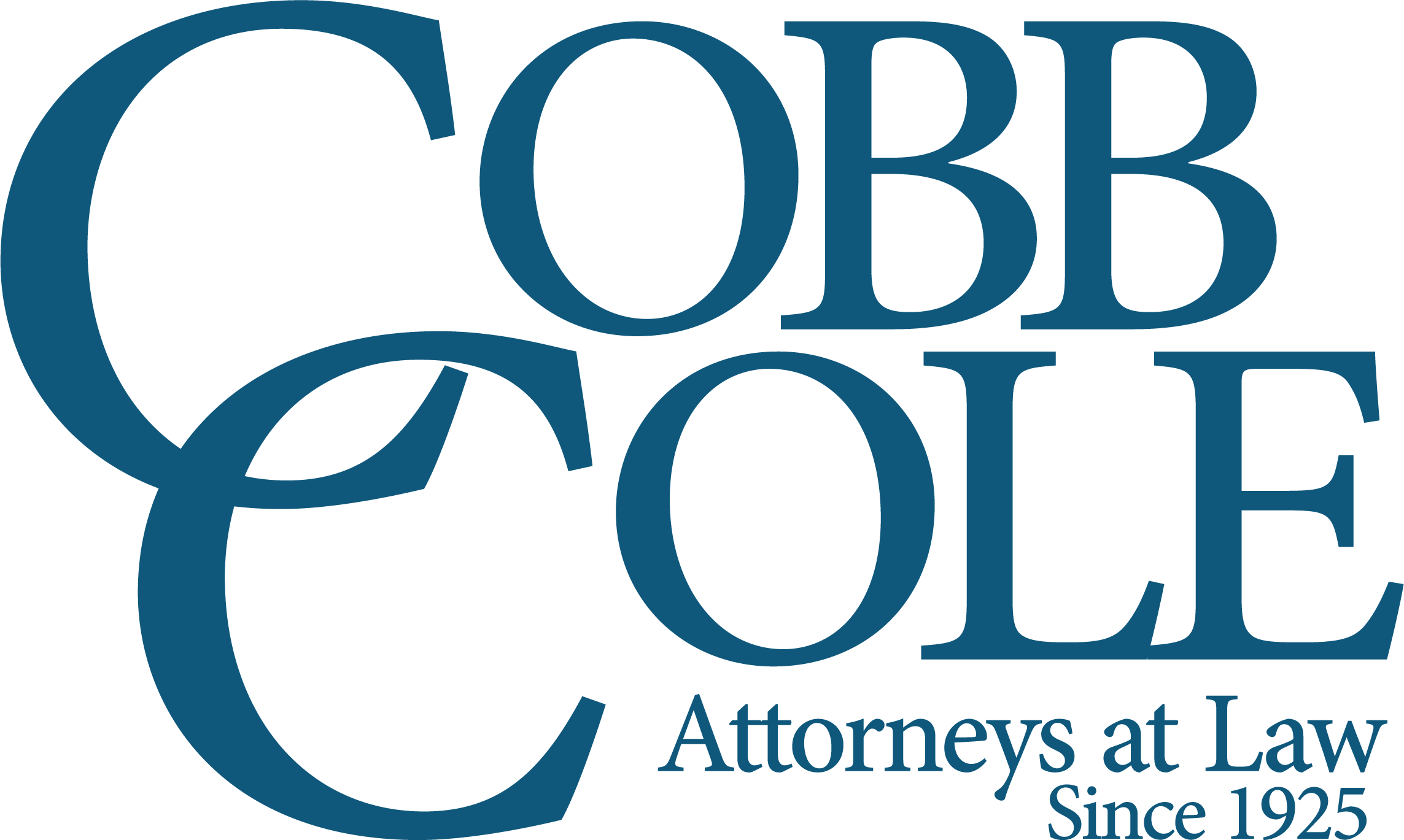Easements are legal rights that allow one party to use another’s property for a specific purpose without owning it. In Florida, understanding the nuances of easements is important for property owners, as they can significantly impact property use, value, and development potential. The attorneys at Cobb Cole’s Real Estate Law group and Land Use & Zoning group work with property owners to address these issues with practical, forward-looking advice.
1. Types of Easements and How They’re Created
Easements fall into two main categories: express and implied, depending on how they are established. Within these categories are several common types based on their purpose and whether they attach to land or to people, or to other entities.
Express Easements
Express easements are created through written agreements such as deeds or contracts that clearly define the easement’s scope and use. These are negotiated and legally recorded.
- Access Easements: Allow a property owner to reserve and use access through a property, and may include the right to improve this area.
- Conservation Easements: Restrict land use to preserve its environmental or historical value. Landowners voluntarily give up development rights, often in partnership with a governmental entity, a nonprofit organization, or a land trust.
- Mineral Easements: Grant the right to access and extract underground resources like oil, gas, or minerals.
Implied Easements
Implied easements arise from the conduct of the parties or from legal necessity, even without a written agreement.
- Easements by Necessity: Created when a property is landlocked and must cross adjacent land to access a public road, subject to specific limitations in the Florida Statutes.
- Prescriptive Easements: Result from continuous, open, and adverse use of someone else’s property for a legally defined period.
Example: A neighbor uses a private driveway daily for 20 years without permission. Under Florida law, this may establish a prescriptive easement, as long as other statutory and procedural steps have been met.
What the Easement is Attached to:
One important distinction for easements is whether the benefit of the easement is attached to the land or to another person or entity.
- Appurtenant Easements: Benefit a specific piece of land (the dominant estate, which benefits from some use of the servient estate) and continues with the land even after ownership changes. These easements are said to “run with the land,” and do not benefit a specific individual or company.
- Easements in Gross: Benefit a person or company, not a specific parcel. Utility companies often hold these to run power lines or pipelines.
2. Rights and Obligations of Easement Holders
Usage Rights: Easement holders have the right to use the servient estate as outlined in the easement’s terms. For example, if an easement grants access on foot, using motor vehicles could be a violation. Florida law may provide allowances for reasonable use of an easement where the document does not clearly define a scope, depending on the circumstances of the parties and properties involved.
Maintenance Responsibilities: The easement holder generally bears responsibility for maintaining the easement area, unless the parties agree otherwise. Neglecting maintenance can expose the holder to liability for damage caused by deterioration.
Scope of Use: The use must match the original intent of the easement. Expanding the use without consent could result in disputes and legal challenges.
3. Rights and Duties of Servient Estate Owners
Property Use: Servient estate owners retain full use of their property, provided they do not interfere with the easement holder’s rights. For instance, constructing a fence that blocks access to an easement would not be permitted.
Non-Interference: Property owners must avoid actions that prevent or obstruct the easement’s purpose. Refusing entry or placing obstructions could subject the owner to court-ordered remedies.
Maintenance: Although the easement holder maintains the easement, the property owner should avoid causing damage or making changes that impair the easement’s use.
4. Negative/Restrictive Easements
Negative/Restrictive easements restrict the servient estate owner from performing certain actions that could harm the dominant estate’s use or enjoyment of their property. Unlike traditional easements that grant affirmative rights (such as crossing land or laying utilities), negative easements impose a duty on the servient estate owner to refrain from doing something.
Light and Air: One of the more traditional examples is a negative easement preventing the construction of structures that would block sunlight or airflow to the dominant property. For instance, imagine a homeowner whose garden relies on direct afternoon sunlight. That homeowner might negotiate a negative easement with their neighbor, preventing the neighbor from constructing a multi-story addition that would cast significant shade over the garden area.
Conservation: In some cases, conservation easements function as negative easements by prohibiting development or land alterations to preserve natural habitats, wetlands, or historic areas. These arrangements often involve agreements with land trusts or government entities, recorded to bind future owners.
The attorneys at Cobb Cole’s Real Estate Law group assist clients with drafting, negotiating, and recording easements. Where broader development restrictions may come into play, Cobb Cole’s Land Use & Zoning group can help navigate any local regulatory requirements that intersect with private easement agreements.
5. Termination of Easements
Agreement: Both parties can agree to terminate an easement voluntarily.
Merger: If one party comes to own both the dominant and servient estates, the easement may be extinguished because it is no longer needed.
Abandonment: An easement may terminate if the holder clearly shows an intent to abandon it, which could be evidenced by non-use over an extended period.
Expiration: Some easements are granted for a specific time period and expire automatically when that period ends.
Property owners should carefully monitor easement terms and usage to understand when and how an easement may cease to exist.
6. Legal Considerations in Florida
Florida law recognizes and regulates various types of easements. For example, specific statutes govern the creation of easements by necessity and prescriptive easements, and recent legal changes have clarified certain aspects of shared-use easements. Property owners in Florida need to balance statutory requirements with common law principles to ensure they are properly managing and enforcing easement rights.
Working with legal counsel helps property owners navigate these complexities. Attorneys with Cobb Cole’s Real Estate Law group can assist with drafting, interpreting, and enforcing easements tailored to particular properties and long-term objectives. When zoning or development questions arise in relation to easements, Cobb Cole’s Land Use & Zoning group offers additional depth of knowledge in land regulation matters.
7. Practical Implications for Property Owners
Due Diligence: Before purchasing any property, buyers should review title reports and surveys to identify recorded easements. Unexpected easements could impact future building plans or property value.
Clear Agreements: When creating easements, property owners should clearly define the scope, maintenance obligations, and duration in written agreements. Doing so minimizes ambiguities that can lead to litigation.
Regular Maintenance: Easement holders should maintain the easement area properly. Servient estate owners should avoid alterations that interfere with the easement’s use.
Professional Assistance: Given the complexity and long-term implications of easements, consulting legal counsel is often advisable. Whether drafting easements for new developments or resolving disputes between neighbors, experienced attorneys can offer clarity and risk management.
Easements can add value, create necessary access, or restrict development potential depending on their scope and use. Florida property owners must approach easements thoughtfully to protect their rights and maximize their property’s utility.

